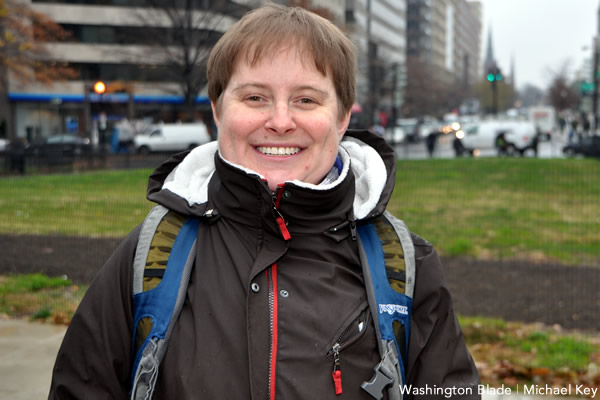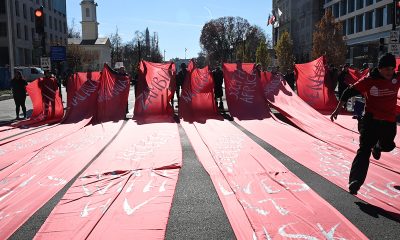Arts & Entertainment
Queery: Shannon Wyss
The AIDS United grant manager and D.C. Trans Coalition volunteer answers 20 gay questions
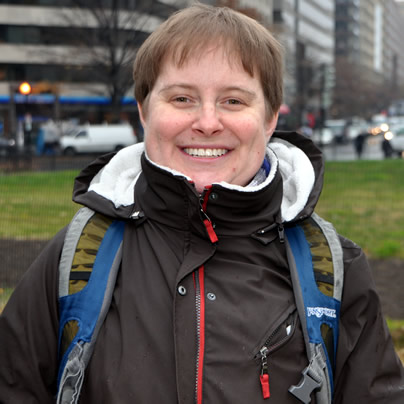
Editor’s note: Shannon Wyss requested and uses gender-neutral pronouns.
After majoring in international studies for hir undergrad degree and womens’ studies for hir master’s, Shannon Wyss wasn’t particularly seeking out AIDS work, but Wyss is passionate about both hir day job as grants manager for AIDS United and hir volunteer work at the D.C. Trans Coalition.
“My work at AIDS United is not really activist work for me, although we do have a policy department,” Wyss says. “What I love about it is that we look at HIV not as a biomedical issue, which it certainly is, but as an issue of social justice that focuses very much on why certain groups are affected more than others by HIV. This is not a coincidence. We find time and time again that the people most affected by it are also the most marginalized.”
Wyss says moving forward, increased — and at times uncomfortable — prevention efforts will be needed.
“I feel like medically we have the tools to mostly combat HIV at this point,” Wyss says. “The drugs that are out there are pretty effective. We don’t have a way of curing it, but we can treat it. Where we’re playing catch up is in preventing new infections. Maybe gay men need some messages that would make straight people a bit squeamish. Or we need to talk about access to clean syringes, but we’re not a culture that wants to acknowledge that it has a drug problem. There are a whole bunch of things culturally we need to address if we’re going to stop new infections. And we also have to address all the issues that go along with that, poverty, homophobia, transphobia, xenophobia, race — and I don’t think we’re ready to deal with all that.”
Wyss, a 40-year-old St. Louis native, has been in the Washington area about 17 years after going to college in Vassar (in New York) and spending a year abroad in Senegal on a study program.
Wyss and partner Katie Wanschura have been together nearly 10 years after meeting in a chorus. Two years ago they bought a house in Hyattsville, Md.
In hir free time, Wyss enjoys giving trans and LGBT seminars, working with gender non-conforming kids, photography, “puttering around the house,” reading, gardening, yard work and caring for the couple’s three cats and one dog.” (Blade photo by Michael Key)
How long have you been out and who was the hardest person to tell?
I’ve been out under varying labels since 1993. If I recall correctly, the hardest person to tell at the time was my favorite teacher from high school, whom I wasn’t sure would still accept me. She did and has remained one of my biggest supporters ever since.
Who’s your LGBT hero?
I deeply admire anyone who is able and willing to be true to hirself under difficult circumstances.
What’s Washington’s best nightspot, past or present?
I don’t do bars or clubs since I don’t drink or dance. But I love anyplace quiet where I can hang out with friends and loved ones.
Describe your dream wedding.
I don’t believe in assimilating into an institution that the state should not be involved in for any couple or group of people. But I was fortunate enough to have a wonderful commitment ceremony with my life partner in July.
What non-LGBT issue are you most passionate about?
Every issue is an LGBTQ issue! But of those who are commonly defined as “not-LGBTQ,” I would put racial and economic justice at the top of my list.
What historical outcome would you change?
Slavery — everywhere, but especially in the “New World.”
What’s been the most memorable pop culture moment of your lifetime?
Answering this would actually require me to be somewhat in touch with what “pop culture” is.
On what do you insist?
Justice and an equitable distribution of resources of all kinds for everyone.
What was your last Facebook post or Tweet?
“Wonderful session at the Harm Reduction Conference today on the anti-trafficking movement and how it is, overall, incredibly conservative, ageist, sexist, transphobic, pro-police and disempowering of youth. The feminist, LGBTQ, and harm reduction movements have to think harder about how we can support sex workers’ rights.”
If your life were a book, what would the title be?
“Privileged: How a White, Middle Class, Well-Educated Genderqueer Tried to Make Social Change”
If science discovered a way to change sexual orientation, what would you do?
Help all of the straight women who can’t find a decent man!
What do you believe in beyond the physical world?
I’m about as agnostic as I can be. So I’m not sure if there’s anything beyond where/what we are now.
What’s your advice for LGBT movement leaders?
It’s about justice, not “just us.” Work with other social justice movements and ours will advance so much more quickly.
What would you walk across hot coals for?
It would have to be something really huge, like a cure for cancer or HIV or world peace. Aside from that, I like my feet just the way they are, thank you.
What LGBT stereotype annoys you most?
What annoys me the most are our community’s attempts to run frantically away from some of the stereotypes about us. There is nothing wrong with being a feminine man, a masculine woman, a radical feminist, sex-positive or a drag queen.
What’s your favorite LGBT movie?
There are so, so many that I haven’t seen! But I do love “Boys Don’t Cry” and “But I’m a Cheerleader.”
What’s the most overrated social custom?
Mornings. And the five-day work week.
What trophy or prize do you most covet?
Being seen as an advocate for social change by my family, friends, and coworkers and, what’s a lot harder, being someone who actually makes change happen.
What do you wish you’d known at 18?
That my life was about to get dramatically better when I went to college and left my small, private, Catholic, cliquey, conservative, all-girls high school.
Why Washington?
I moved here right after college in 1995 and never left: great mass transit, free museums, a really diverse population and progressive overall. What’s not to like?
Sports
US wins Olympic gold medal in women’s hockey
Team captain Hilary Knight proposed to girlfriend on Wednesday

The U.S. women’s hockey team on Thursday won a gold medal at the Milan Cortina Winter Olympics.
Team USA defeated Canada 2-1 in overtime. The game took place a day after Team USA captain Hilary Knight proposed to her girlfriend, Brittany Bowe, an Olympic speed skater.
Cayla Barnes and Alex Carpenter — Knight’s teammates — are also LGBTQ. They are among the more than 40 openly LGBTQ athletes who are competing in the games.
The Olympics will end on Sunday.
Movies
Radical reframing highlights the ‘Wuthering’ highs and lows of a classic
Emerald Fennell’s cinematic vision elicits strong reactions

If you’re a fan of “Wuthering Heights” — Emily Brontë’s oft-filmed 1847 novel about a doomed romance on the Yorkshire moors — it’s a given you’re going to have opinions about any new adaptation that comes along, but in the case of filmmaker Emerald Fennell’s new cinematic vision of this venerable classic, they’re probably going to be strong ones.
It’s nothing new, really. Brontë’s book has elicited controversy since its first publication, when it sparked outrage among Victorian readers over its tragic tale of thwarted lovers locked into an obsessive quest for revenge against each other, and has continued to shock generations of readers with its depictions of emotional cruelty and violent abuse, its dysfunctional relationships, and its grim portrait of a deeply-embedded class structure which perpetuates misery at every level of the social hierarchy.
It’s no wonder, then, that Fennell’s adaptation — a true “fangirl” appreciation project distinguished by the radical sensibilities which the third-time director brings to the mix — has become a flash point for social commentators whose main exposure to the tale has been flavored by decades of watered-down, romanticized “reinventions,” almost all of which omit large portions of the novel to selectively shape what’s left into a period tearjerker about star-crossed love, often distancing themselves from the raw emotional core of the story by adhering to generic tropes of “gothic romance” and rarely doing justice to the complexity of its characters — or, for that matter, its author’s deeper intentions.
Fennell’s version doesn’t exactly break that pattern; she, too, elides much of the novel’s sprawling plot to focus on the twisted entanglement between Catherine Earnshaw (Margot Robbie), daughter of the now-impoverished master of the titular estate (Martin Clunes), and Heathcliff (Jacob Elordi), a lowborn child of unknown background origin that has been “adopted” by her father as a servant in the household. Both subjected to the whims of the elder Earnshaw’s violent temper, they form a bond of mutual support in childhood which evolves, as they come of age, into something more; yet regardless of her feelings for him, Cathy — whose future status and security are at risk — chooses to marry Edgar Linton (Shazad Latif), the financially secure new owner of a neighboring estate. Heathcliff, devastated by her betrayal, leaves for parts unknown, only to return a few years later with a mysteriously-obtained fortune. Imposing himself into Cathy’s comfortable-but-joyless matrimony, he rekindles their now-forbidden passion and they become entwined in a torrid affair — even as he openly courts Linton’s naive ward Isabella (Alison Oliver) and plots to destroy the entire household from within. One might almost say that these two are the poster couple for the phrase “it’s complicated.” and it’s probably needless to say things don’t go well for anybody involved.
While there is more than enough material in “Wuthering Heights” that might easily be labeled as “problematic” in our contemporary judgments — like the fact that it’s a love story between two childhood friends, essentially raised as siblings, which becomes codependent and poisons every other relationship in their lives — the controversy over Fennell’s version has coalesced less around the content than her casting choices. When the project was announced, she drew criticism over the decision to cast Robbie (who also produced the film) opposite the younger Elordi. In the end, the casting works — though the age gap might be mildly distracting for some, both actors deliver superb performances, and the chemistry they exude soon renders it irrelevant.
Another controversy, however, is less easily dispelled. Though we never learn his true ethnic background, Brontë’s original text describes Heathcliff as having the appearance of “a dark-skinned gipsy” with “black fire” in his eyes; the character has typically been played by distinctly “Anglo” men, and consequently, many modern observers have expressed disappointment (and in some cases, full-blown outrage) over Fennel’s choice to use Elordi instead of putting an actor of color for the part, especially given the contemporary filter which she clearly chose for her interpretation for the novel.
In fact, it’s that modernized perspective — a view of history informed by social criticism, economic politics, feminist insight, and a sexual candor that would have shocked the prim Victorian readers of Brontë’s novel — that turns Fennell’s visually striking adaptation into more than just a comfortably romanticized period costume drama. From her very opening scene — a public hanging in the village where the death throes of the dangling body elicit lurid glee from the eagerly-gathered crowd — she makes it oppressively clear that the 18th-century was not a pleasant time to live; the brutality of the era is a primal force in her vision of the story, from the harrowing abuse that forges its lovers’ codependent bond, to the rigidly maintained class structure that compels even those in the higher echelons — especially women — into a kind of slavery to the system, to the inequities that fuel disloyalty among the vulnerable simply to preserve their own tenuous place in the hierarchy. It’s a battle for survival, if not of the fittest then of the most ruthless.
At the same time, she applies a distinctly 21st-century attitude of “sex-positivity” to evoke the appeal of carnality, not just for its own sake but as a taste of freedom; she even uses it to reframe Heathcliff’s cruel torment of Isabella by implying a consensual dom/sub relationship between them, offering a fragment of agency to a character typically relegated to the role of victim. Most crucially, of course, it permits Fennell to openly depict the sexuality of Cathy and Heathcliff as an experience of transgressive joy — albeit a tormented one — made perhaps even more irresistible (for them and for us) by the sense of rebellion that comes along with it.
Finally, while this “Wuthering Heights” may not have been the one to finally allow Heathcliff’s ambiguous racial identity to come to the forefront, Fennell does employ some “color-blind” casting — Latif is mixed-race (white and Pakistani) and Hong Chau, understated but profound in the crucial role of Nelly, Cathy’s longtime “paid companion,” is of Vietnamese descent — to illuminate the added pressures of being an “other” in a world weighted in favor of sameness.
Does all this contemporary hindsight into the fabric of Brontë’s epic novel make for a quintessential “Wuthering Heights?” Even allowing that such a thing were possible, probably not. While it presents a stylishly crafted and thrillingly cinematic take on this complex classic, richly enhanced by a superb and adventurous cast, it’s not likely to satisfy anyone looking for a faithful rendition, nor does it reveal a new angle from which the “romance” at its center looks anything other than toxic — indeed, it almost fetishizes the dysfunction. Even without the thorny debate around Heathcliff’s racial identity, there’s plenty here to prompt purists and revisionists alike to find fault with Fennell’s approach.
Yet for those looking for a new window into to this perennial classic, and who are comfortable with the radical flourish for which Fennell is already known, it’s an engrossing and intellectually stimulating exploration of this iconic story in a way that exchanges comfortable familiarity for unpredictable chaos — and for cinema fans, that’s more than enough reason to give “Wuthering Heights” a chance.
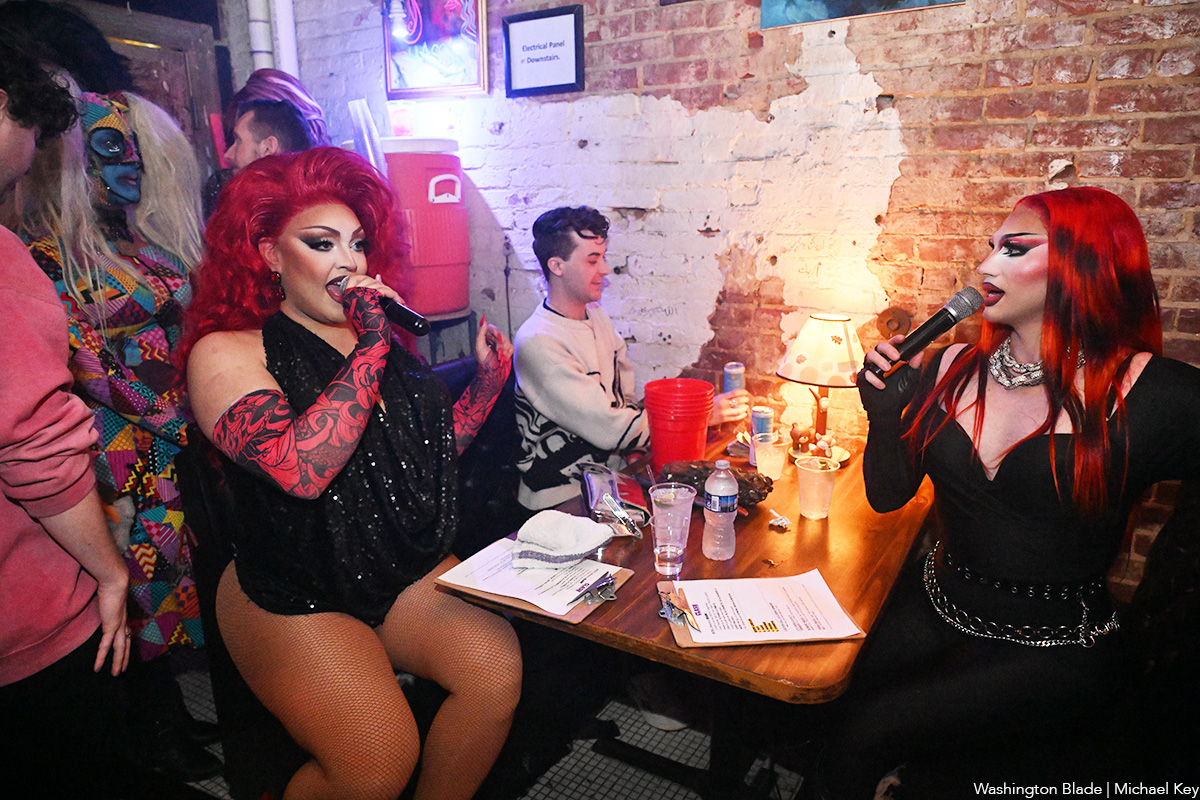
Crimsyn and Tatianna hosted the new weekly drag show Clash at Trade (1410 14th Street, N.W.) on Feb. 14, 2026. Performers included Aave, Crimsyn, Desiree Dik, and Tatianna.
(Washington Blade photos by Michael Key)
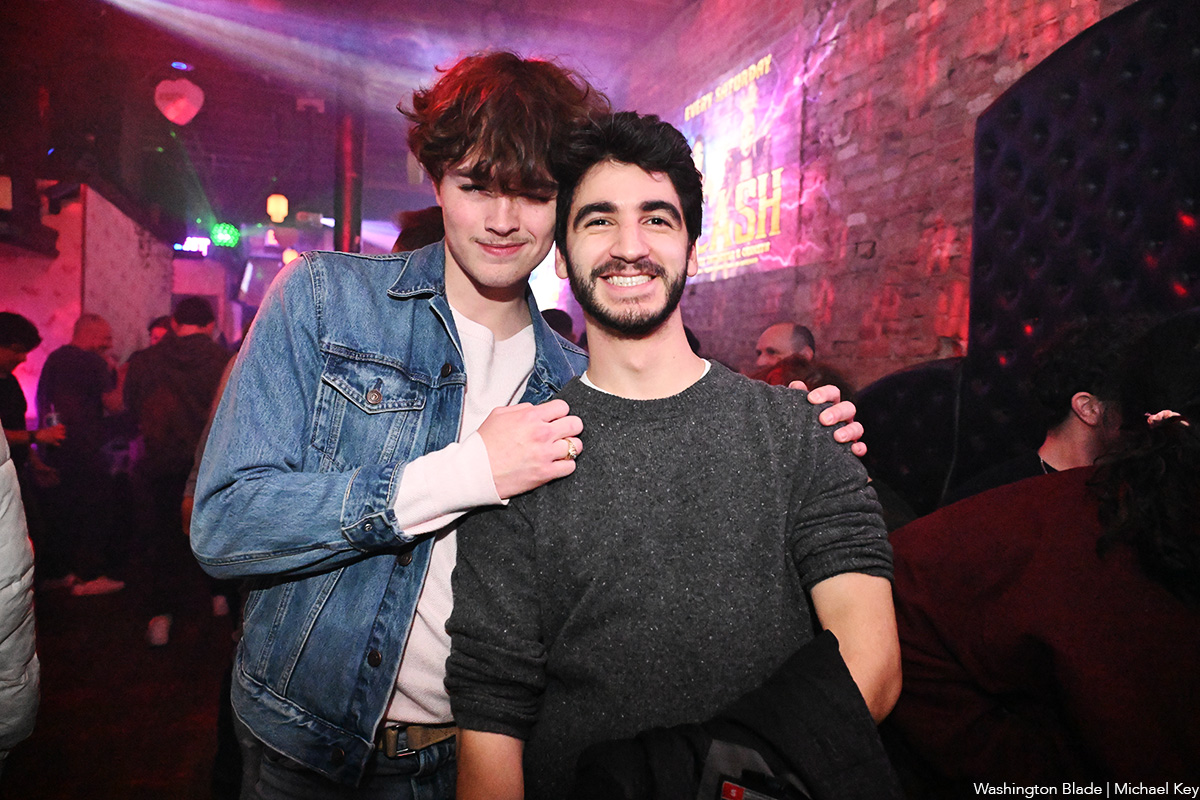
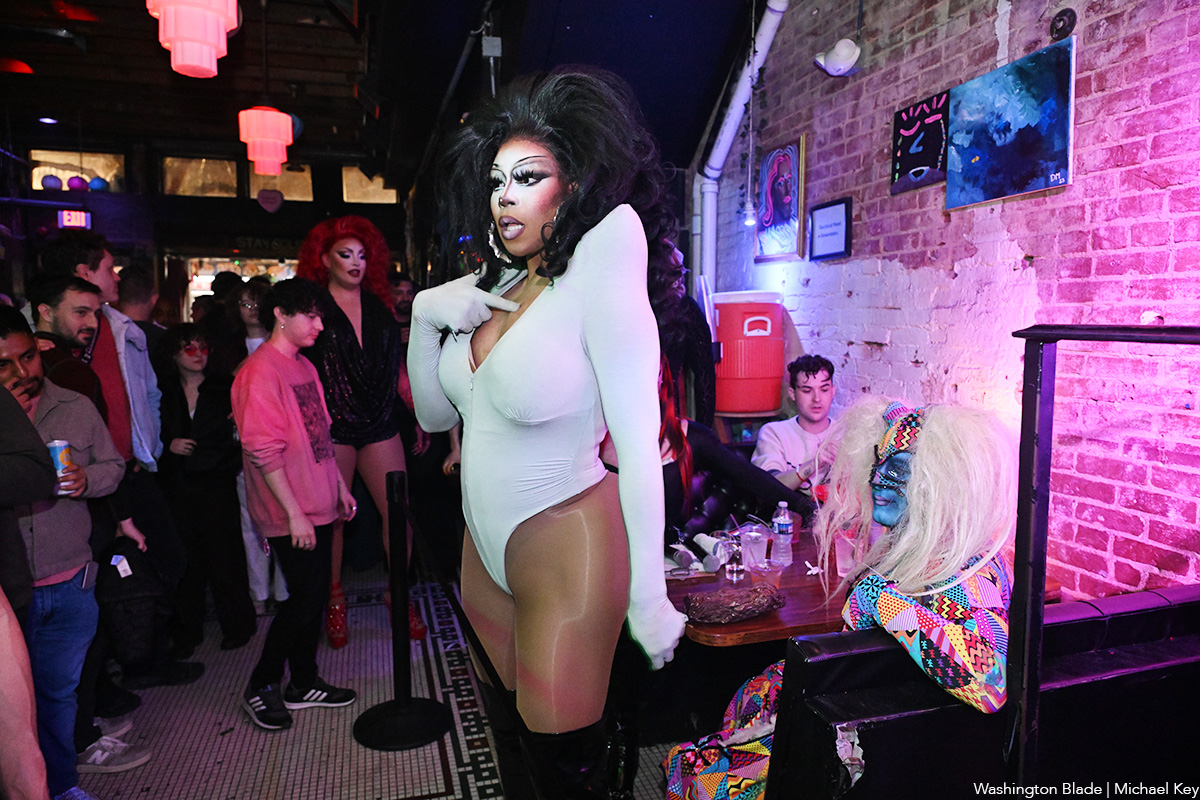
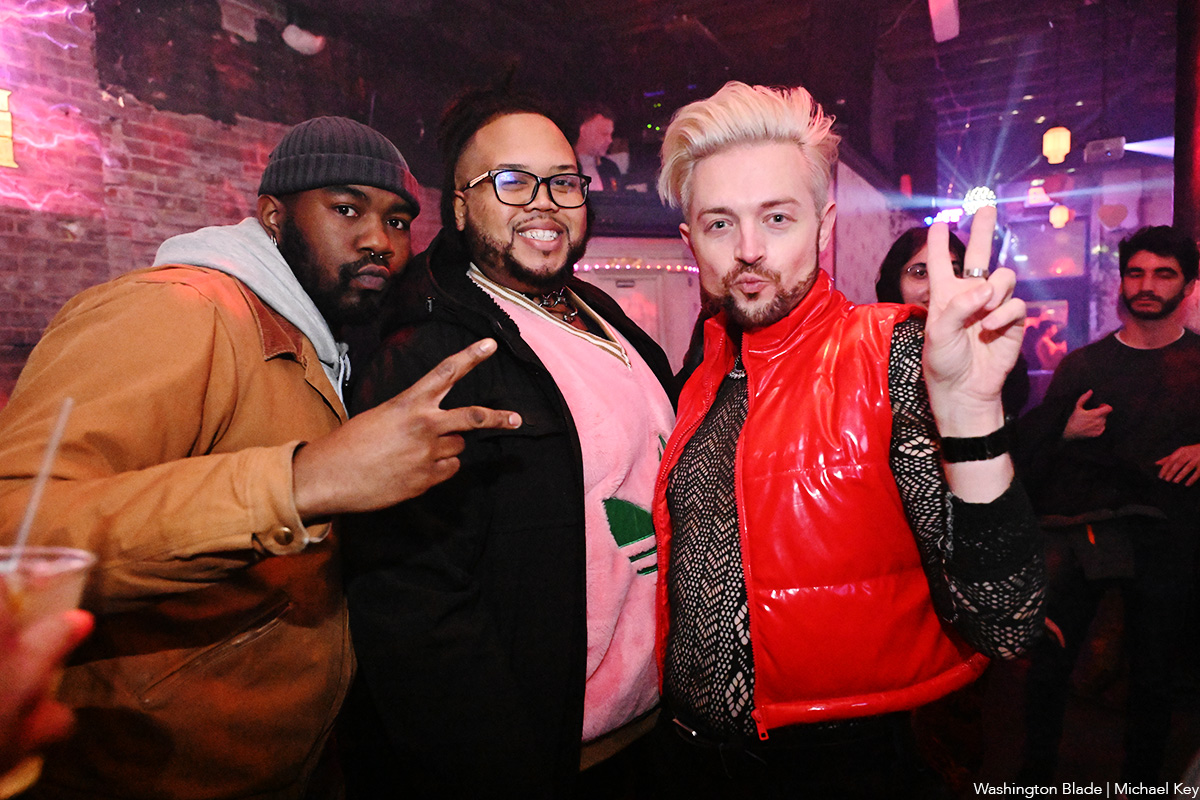
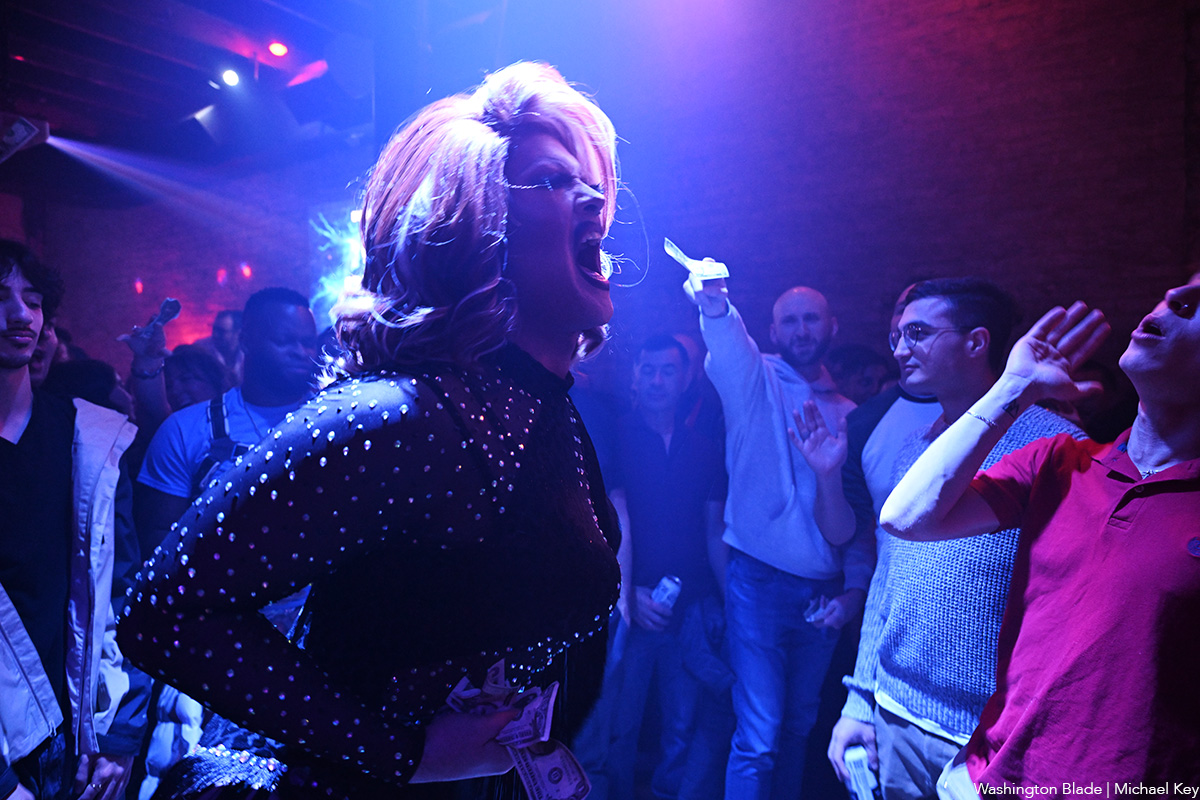
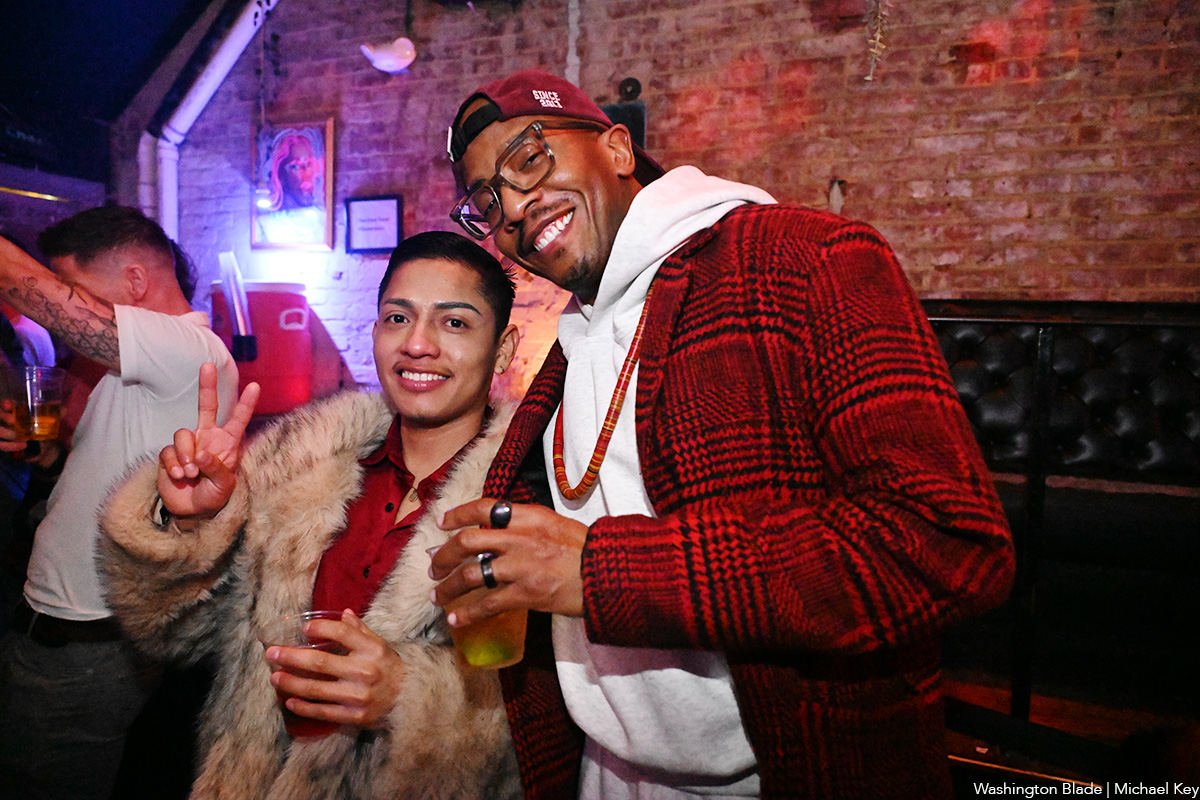
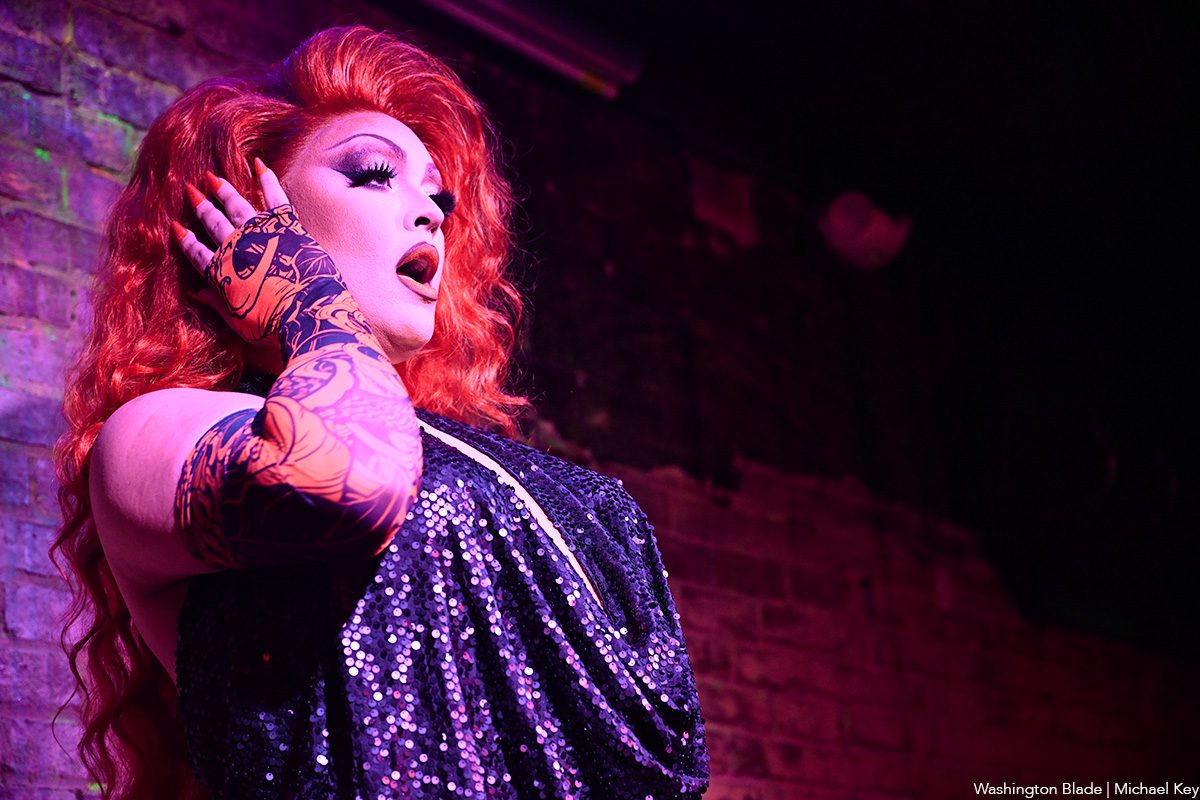
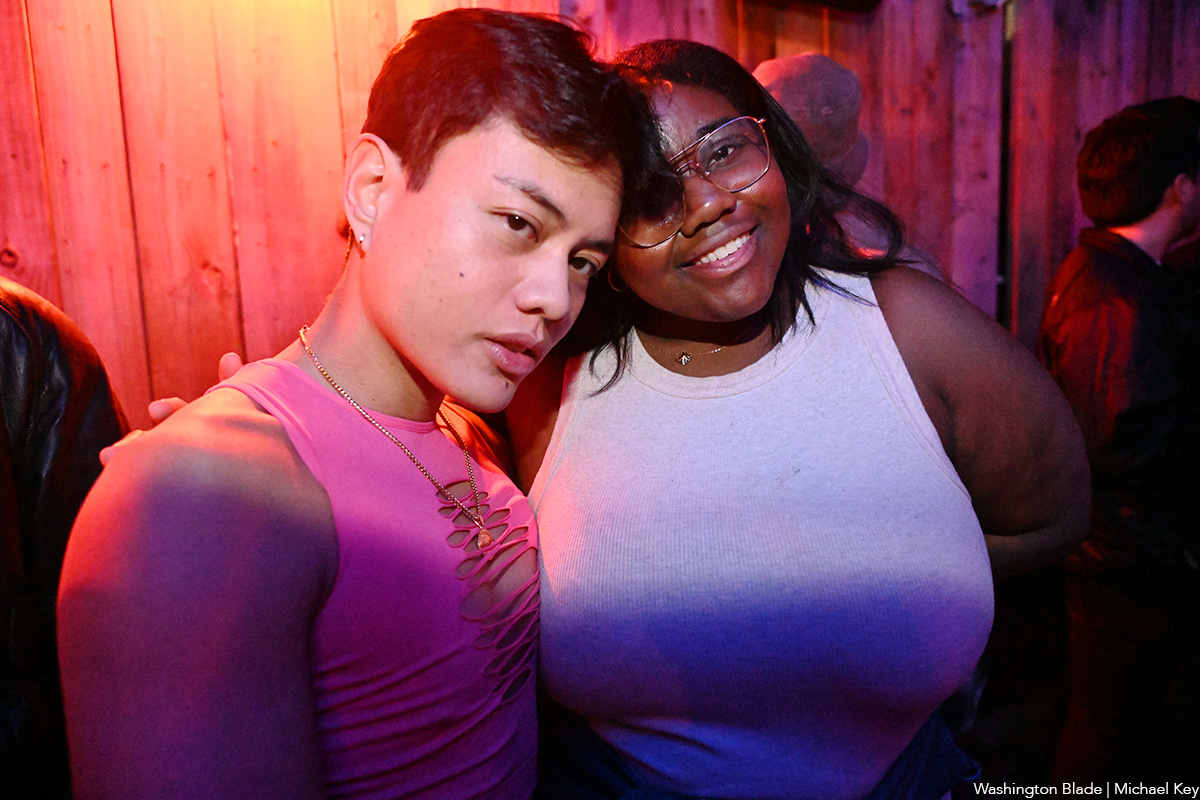
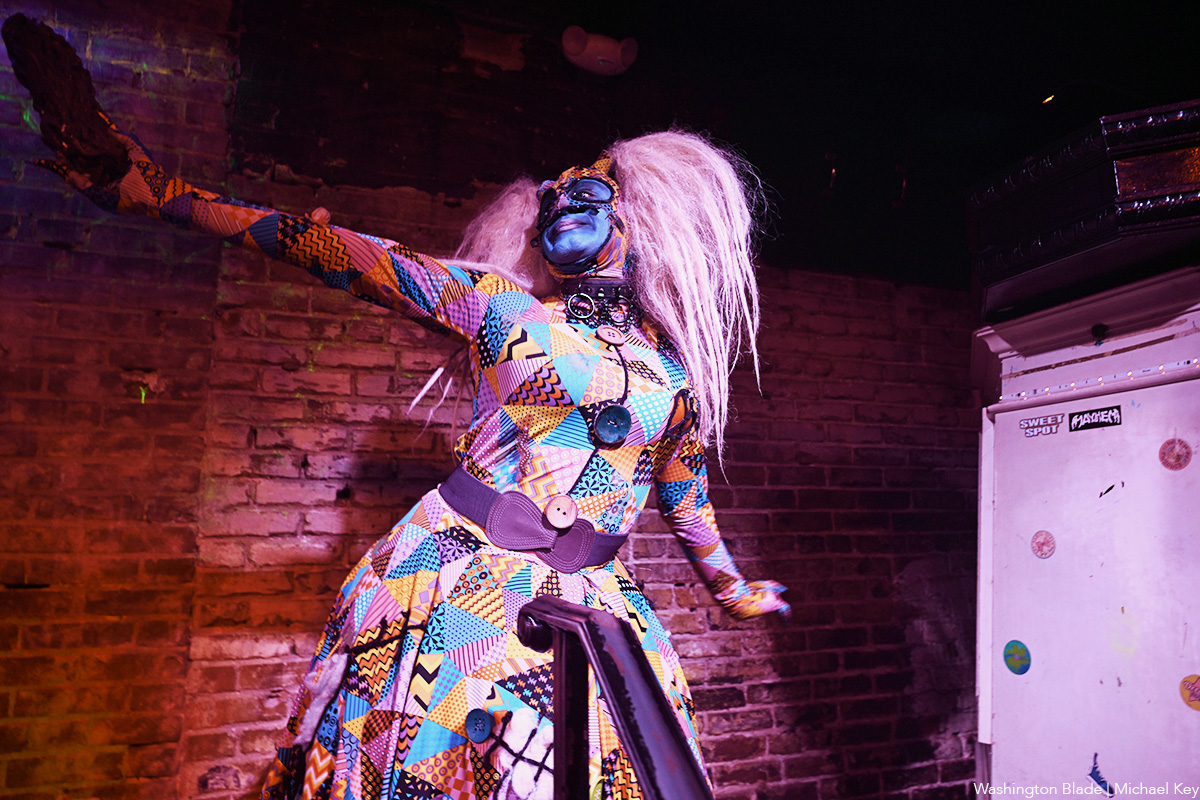
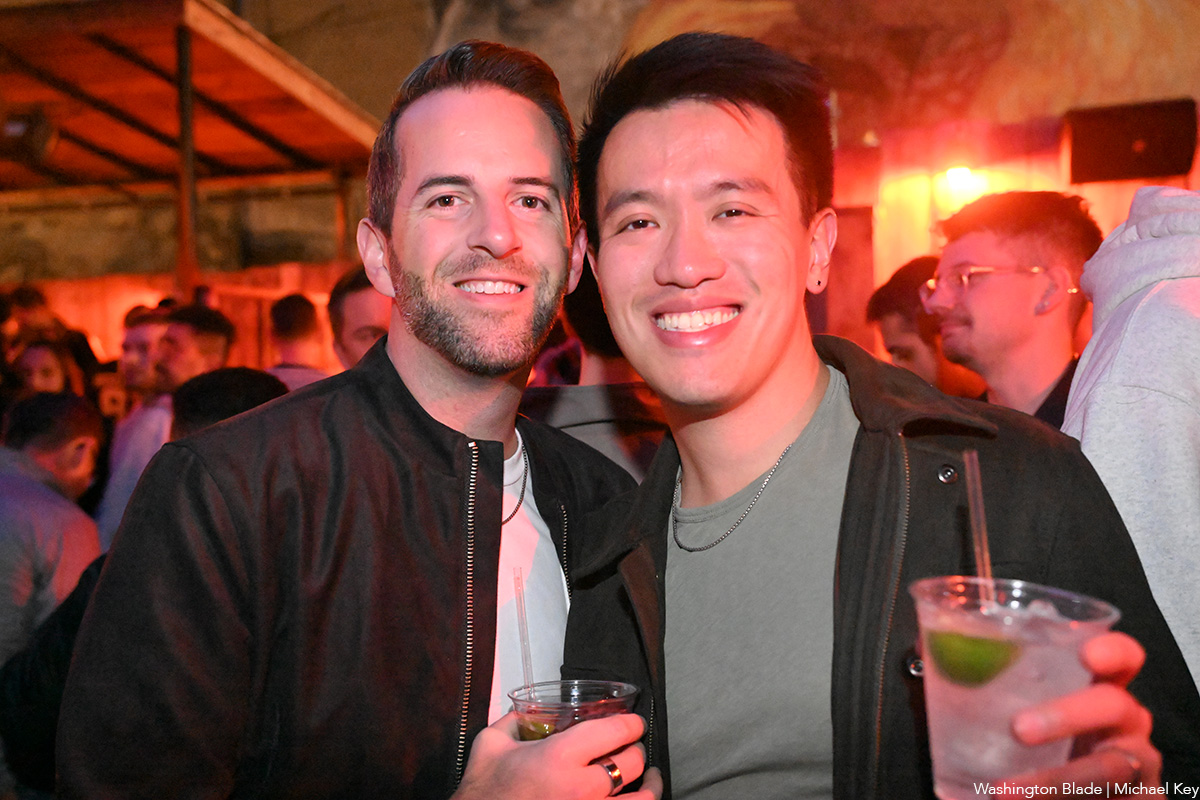
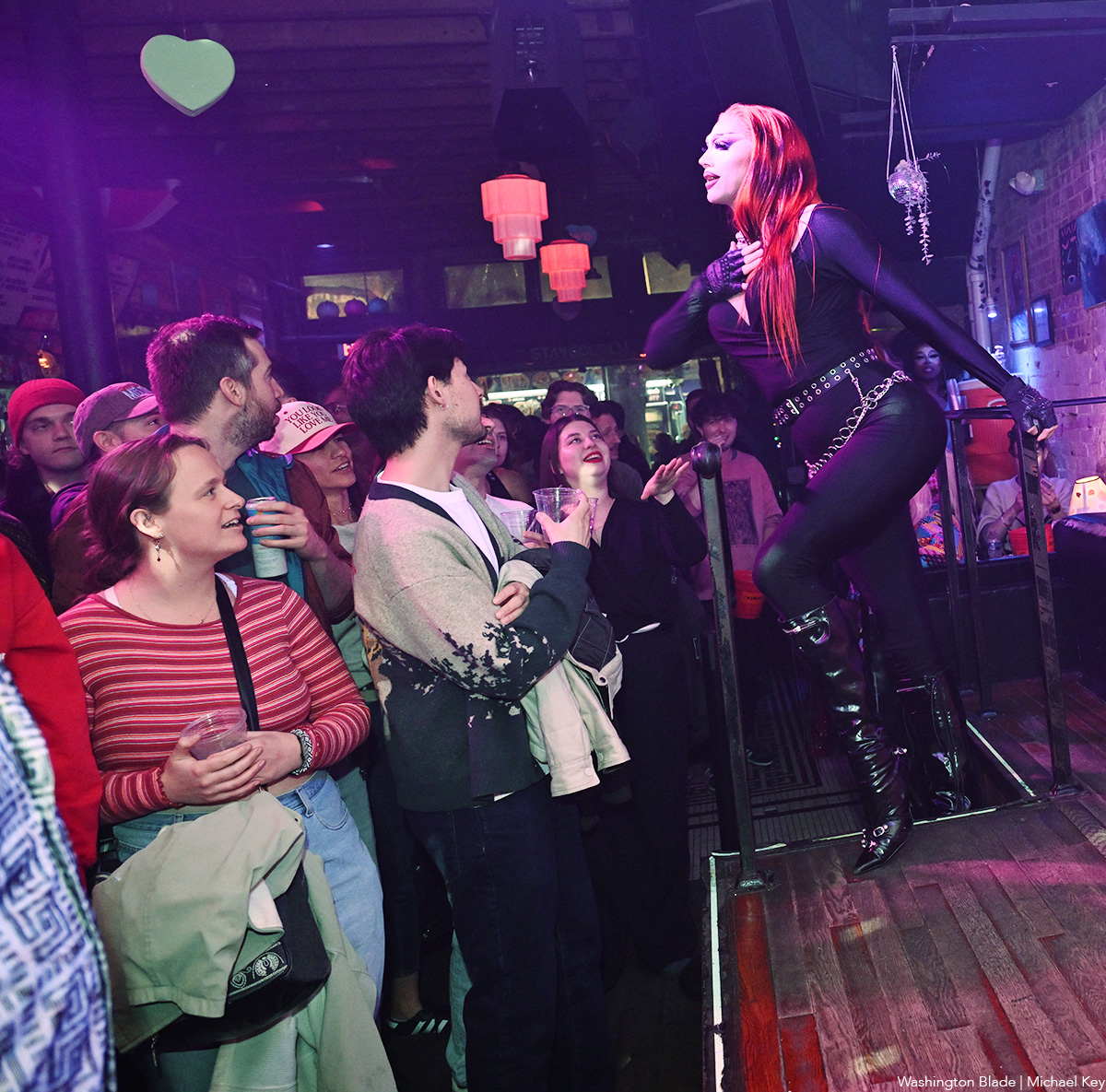
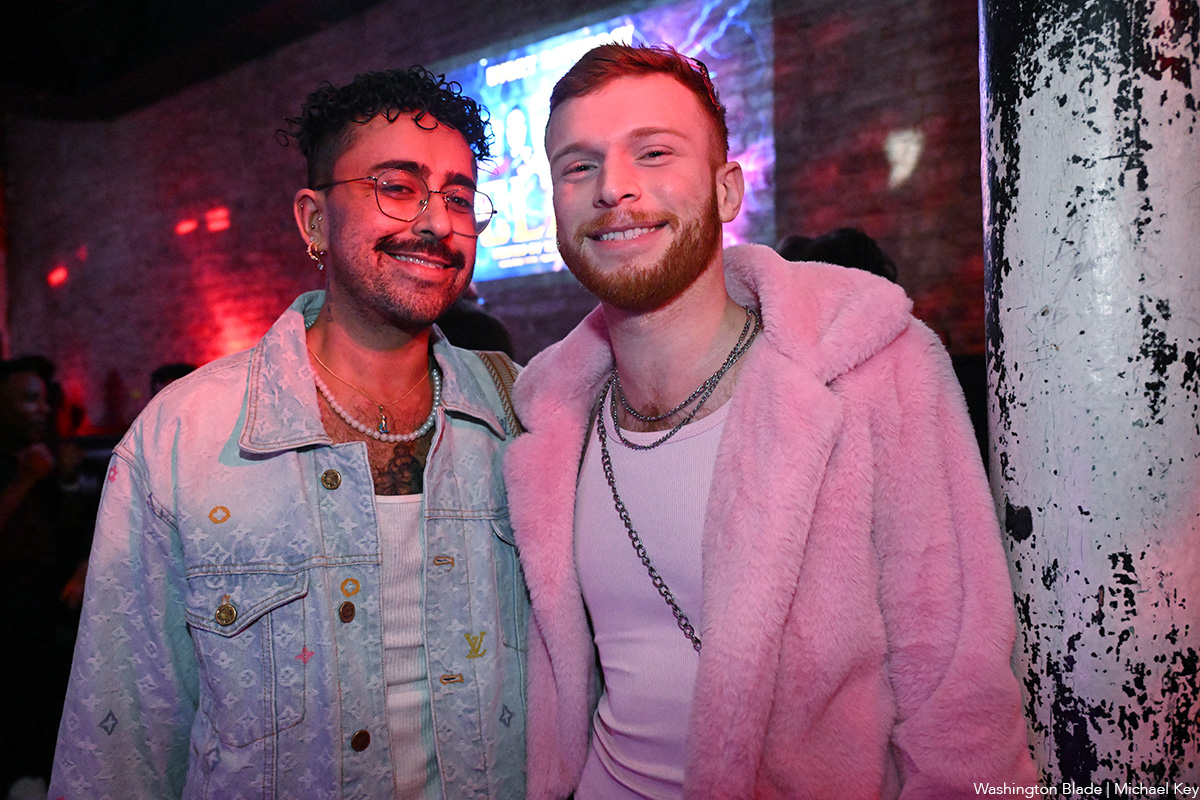
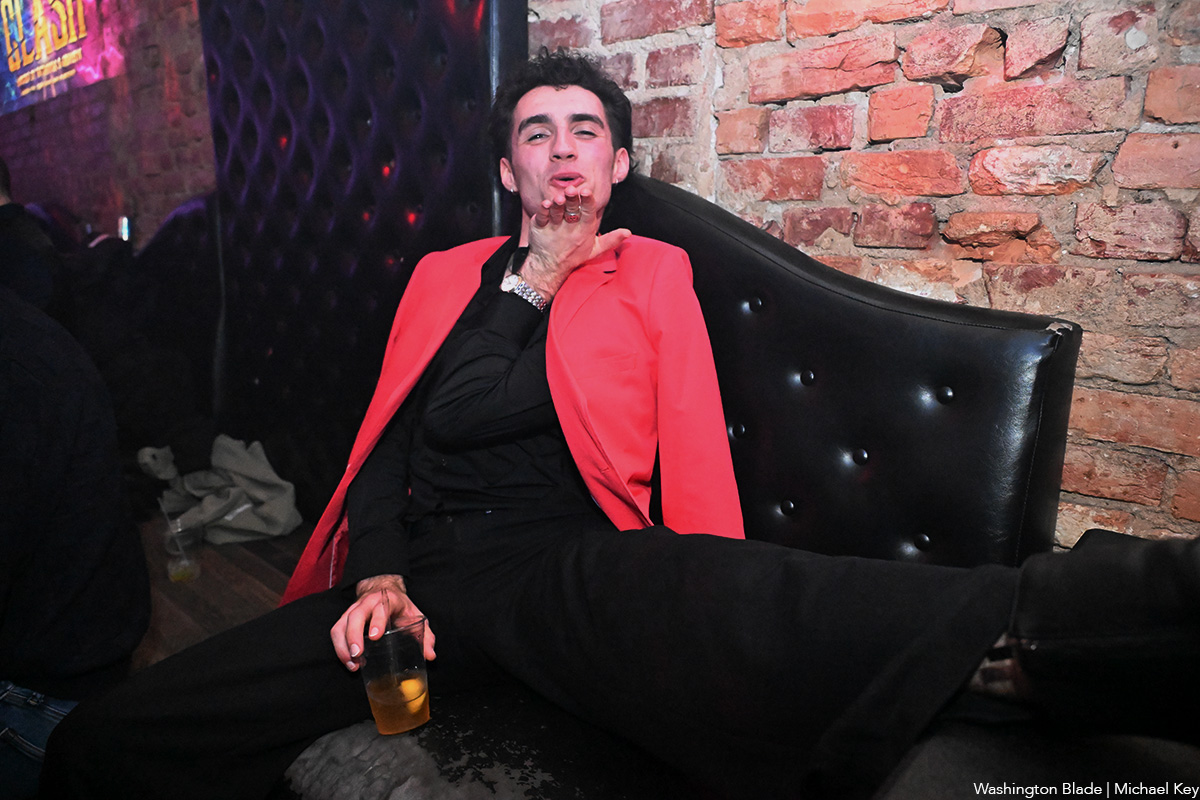
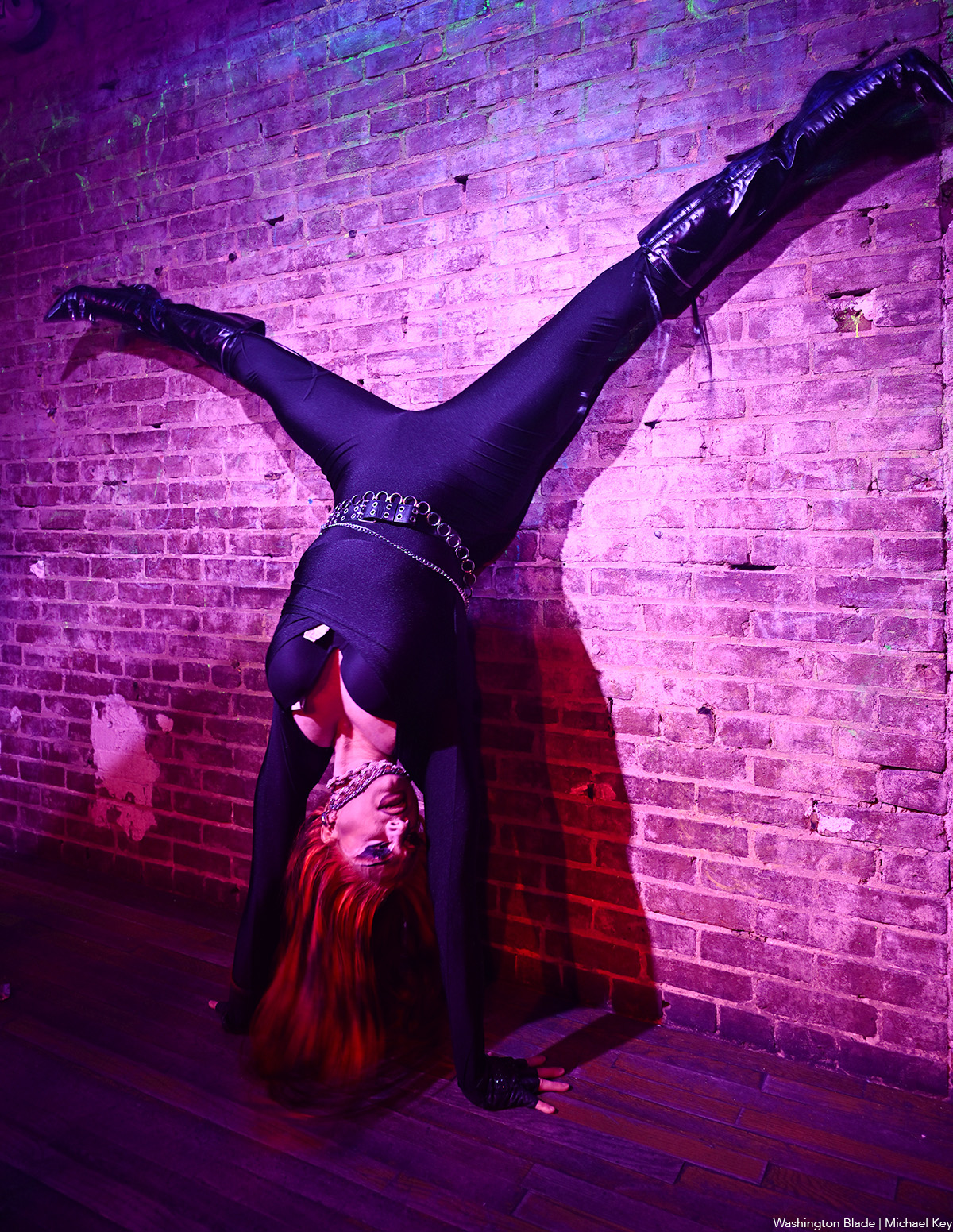
-

 Baltimore4 days ago
Baltimore4 days ago‘Heated Rivalry’ fandom exposes LGBTQ divide in Baltimore
-

 Real Estate4 days ago
Real Estate4 days agoHome is where the heart is
-

 District of Columbia4 days ago
District of Columbia4 days agoDeon Jones speaks about D.C. Department of Corrections bias lawsuit settlement
-

 European Union4 days ago
European Union4 days agoEuropean Parliament resolution backs ‘full recognition of trans women as women’

